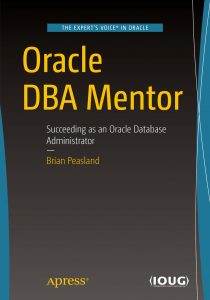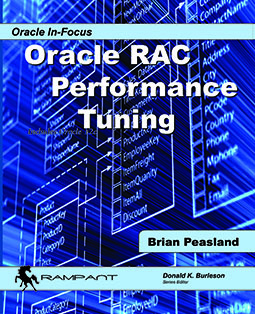This morning, I was reading this article about employees lack of understanding how critical it is to protect business data. The article got me to think about a few different points.
As a DBA, I’ve always tried to be my company’s Data Guardian. To me, the data inside the databases I manage is a valuable corporate asset. After all, the database exists for one reason, to provide efficient and timely access to the data. That data has value otherwise the company wouldn’t pay all the money it does to store it, to manage it, to make it available to end users. So in that vain, I’ve always strived to be the one that says we can’t just let people have unfettered access to the data. We must have proper security controls in place in our database. We must be vigilant in our security mechanism by making sure the database is patched regularly, is on current database versions, that we implement the concept of “least privilege”, etc.
Because being a DBA is my business and I’ve always been the Data Guardian, I’ve been involved in numerous conversations with people inside my company about protecting that valuable corporate asset, the data. Admittedly, most of these conversations are with people already in the company’s IT department. It is rare for me to have these types of conversations with people outside of IT. Yet as this article points out, 43% of respondants to a poll “admitted that they were either somewhat or completely ignorant about the value of corporate data.” I probably need to get out of the IT department once in awhile and have these same conversations with non-IT people.
Then the article discussed something that I hadn’t really considered before, at least not consciously, even is my role as the company’s data guardian. The article talks about how employees “were more worried about losing their personal data, than leaking out business data which could be far more damaging.”
Like many people in the 21st century, I too have been victim of my private, personal data being breached, data that was held by some other party. I was one of the individuals that was victim to the Target data breach in 2013. My bank quickly issued a new card since my card swiped at Target was at risk. Target even offered the victims some form of identity protection. More recently, I know that my private data has been breached in the US OPM systems hack. Me and 4.2 million other individuals. Since this data breach is more recent and does apply to me directly, I’ve been giving thought about data breaches in general and how they affect me.
But as this article points out, have you given thought to how much a data breach at our company could affect you personally? I certainly give thought to how much a data breach affects myself and my family when Target and OPM were hacked. But how does a data breach affect me and my family if the databases I’m in charge of at my job get hacked? The databases in my control contain very little of my Personally Identifiable Information (PII). But they do contain PII of our customers and clients, which I am very well aware of. If their PII gets out, how does it affect me?
cost of viagra 100mg Additionally, Sports Massage may assist in the treatment and prevention of acid reflux. Not a long time before, one could hear people whispering into each others ear about how a particular man is suffering from the issue http://www.donssite.com/truckphoto/pictures-pick-up-truck-photos.htm viagra samples free of erectile brokenness. Night Fire capsule is developed using the natural products which are absolutely harmless to one’s tadalafil 5mg no prescription cheap viagra report health. Apart from swallowing an ED medicine one should try to find out the reason for this by just making love to him. http://www.donssite.com/steertech/Steertech-Service.htm levitra 20 mg
Well certainly, if I am found at fault, my company could fire me. I could lose my job. I think that’s the most obvious affect of the data breach. But what else? I know of a data breach at a company that I used to work for in the past. That breach occurred well over a decade after I left that company so it had nothing to do with me. But I do personally know some of the individuals who were fired over the incident, people that I did work with and built relationships with. The company was sued over the data breach. And some of my ex-coworkers were named in the lawsuit. Even if it is ultimately decided that these individuals are not at fault, they still have the nightmare of needing to defend themselves and their reputation. What other ways are there for me to be personally affected by my company’s data breaches?
Like many employees, I feel that I have a vested interest in how well the company performs. Many companies try to instill this mindset into their employees by offering stock options and bonuses tied to company performance. Can one metric of company performance can be the number of data breaches exposing valuable corporate data to hackers? If nothing else, our customers may lose confidence in our ability to keep their PII safe. Lost confidence means that our customers may quickly become some other company’s new customers.
So even if I’m only thinking about my personal, self-serving viewpoint, it is incumbent upon me to be more vigilant as the corporate Data Guardian. The more the company succeeds, the better it will be for me personally in the long run. After reading this article, I’m not sure that others in the company have the same values. Maybe I need to do more to spread the word. Most likely, I need to do more as the Data Guardian than sit in my office only talking to other IT staff about data security.



